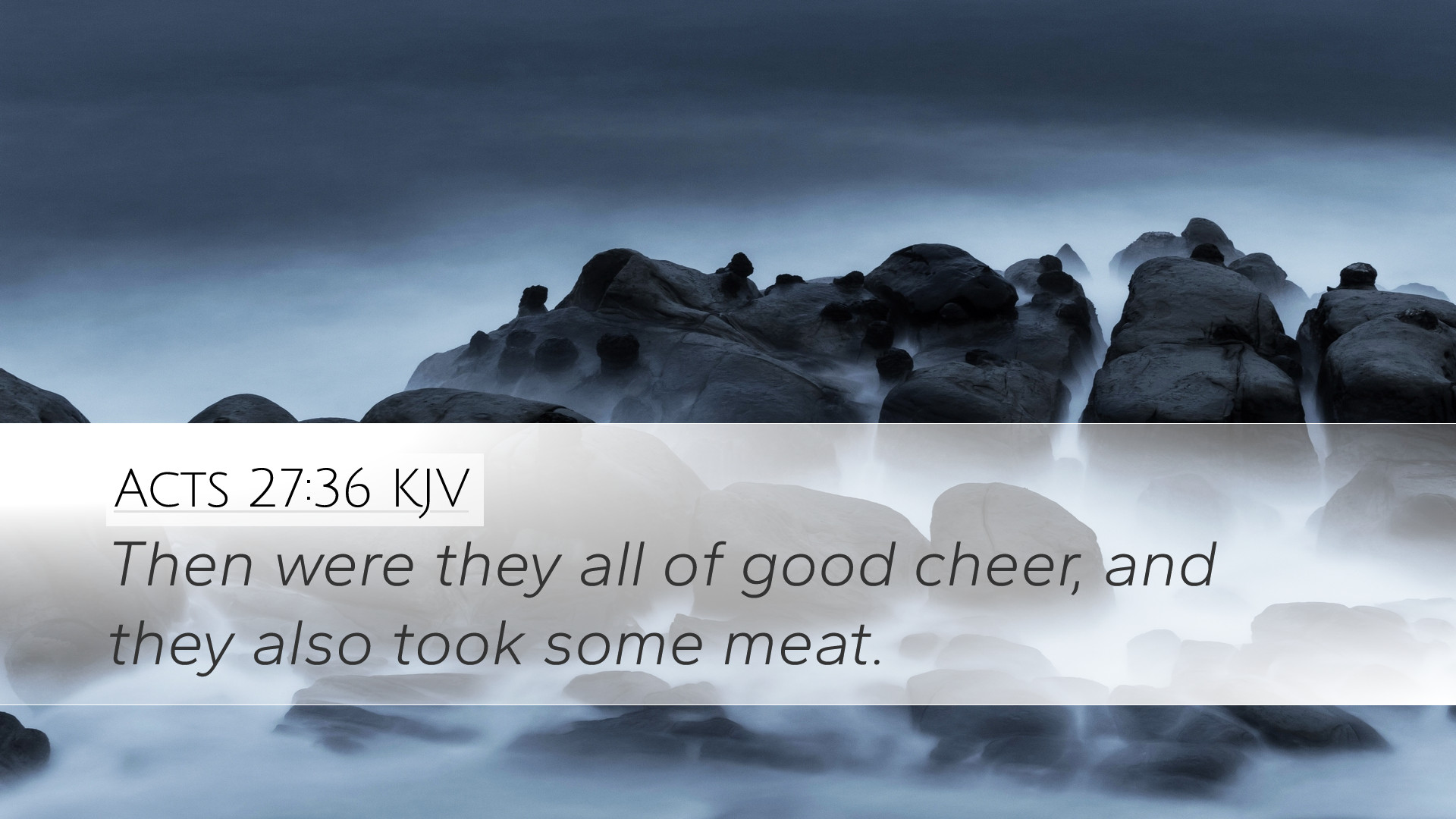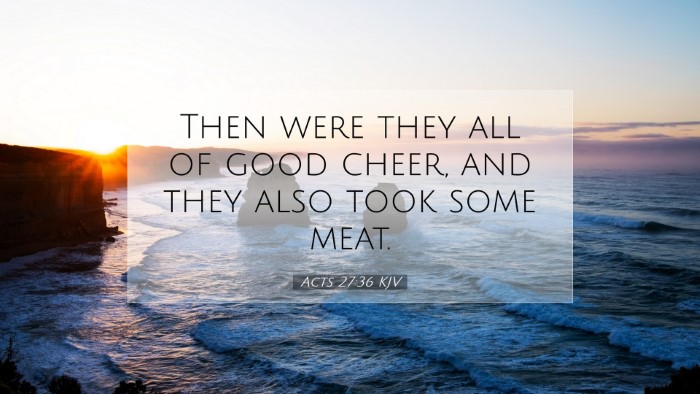Bible Commentary on Acts 27:36
Acts 27:36: "Then were they all of good cheer, and they also took some meat."
Contextual Overview
The verse sits at a critical juncture in the narrative of Paul's perilous voyage to Rome. Amidst dire circumstances—an imminent shipwreck and treacherous weather—Paul encourages those aboard, reinforcing the significance of faith and communal trust in adverse times. This act of encouragement sets the stage for the restoration of courage among the men.
Insights from Public Domain Commentaries
Matthew Henry's Commentary
Matthew Henry reflects on the spiritual and physical nourishment represented in the act of eating. He emphasizes that cheerfulness in the face of despair is grounded in faith. When Paul relayed the message from God—that everyone would be spared—he instilled hope and bravery. Henry points out that the act of taking meat signifies the reclamation of strength both physically and spiritually. He notes:
- "The apostle's cheerful counsel encouraged them to take food."
- "They received the encouragement, and it became the means of their preservation."
Albert Barnes' Notes on the Bible
Barnes describes the importance of the collective response of those in distress. He articulates that the collective spirit of 'good cheer' isn't merely a reaction; it reflects a deeper understanding of divine providence. By taking food, they not only acknowledge their physical needs but also the securing of God's promise as relayed by Paul. Barnes posits:
- "They were all partakers of the blessing... it was an act of faith manifesting in practical need."
- "Eating together in the midst of peril reveals unity and shared hope."
Adam Clarke's Commentary
Clarke provides an interpretation that delves into the psychological state of the crew and passengers. He elaborates on the miraculous aspect of the voyage, emphasizing that it was Paul's faith that catalyzed this moment of communal revival. Clarke suggests that:
- "They had been in a state of fasting from grief and fear."
- "Paul is a leader who shows how faith leads to action, and how divine intervention can rejuvenate."
Faith and Encouragement in Adversity
From these commentaries, a core theme emerges: the role of faith in encouraging others during challenging times. Paul serves as a model leader whose trust in God not only sustains him but also uplifts those around him. This dynamic illustrates the powerful influence of faith-based encouragement, culminating in unity and collective resilience.
Theological Reflections
Acts 27:36 invites theological reflection on the nature of despair vs. hope, and the actions that spring from faith. Paul's assurance—inspired by divine revelation—paved the way for both physical eating and spiritual lifting. The verses that precede this moment echo God's faithfulness, and thus, they serve as a reminder of God's providence amid trials.
Practical Applications for Today
For pastors, students, and theologians today, this passage underscores several applications:
- Faith in Leadership: Leaders are called to instill hope and provide encouragement, particularly during crises.
- Community in Crisis: The communal aspect of taking cheer and nourishment indicates that believers are meant to support one another.
- Divine Assurance: Acts of faith often precede divine intervention; confidence in God's promises holds transformative power.
Conclusion
Acts 27:36 is more than just a historical narrative; it is a significant source of encouragement for those in ministry and the wider church today. In the example of Paul, we see a profound relationship between faith, encouragement, and community, valuable for all who seek to lead in faith, especially in times of uncertainty.


